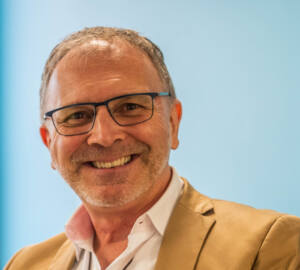
WelCom September 2023
Michael Fitzsimons
The gifts we have as Catholics are not just to build a stronger church but to help build a better world, says visiting Australian religious educator Professor Br David Hall fms.
‘We’ve been focused too inwardly and we need to remember that while religion and churches are an important part of a society, they exist to serve the society.
‘We have fine young people in our schools who have an intuition for wanting a world better than it is. And the new New Zealand Religious Education curriculum, called Good News, is a wonderful framework to suggest to them that’s the way they could live their lives.
‘My belief is that all people, of any faith or none, have an intuition for a more compassionate humanity. In this new RE curriculum, which puts forward the value of tradition and scripture, we have a set of values and virtues about how to live a life which our society I think is intuitively inclined to.’
Br David was in New Zealand in August running seminars for principals, RE directors, and teachers in the four North Island dioceses. A Marist brother, he is Dean of La Salle Academy at the Australian Catholic University based in Sydney.
Genuine dialogue
A genuine dialogue between Church and culture is needed, says Br David.
‘Vatican II was very keen that the Church continue to speak to the world, but in an advancement on Vatican II, under this current Pope, we now have the Church speaking to the world and the world speaking to the Church. The latter part is a new addition.
Our biggest challenge is to speak against that message of self-interest and speak for the dignity of everybody and the value of the common good.
‘The Church liked to talk to tell the world. And Vatican II was constituted because the world wasn’t listening. But under this new Pope and this new synodal way that he’s calling us to, it’s about a dialogue with the world.
‘The world is good, not perfect. The world is seeking a better humanity and we have a way to achieve that. And that is in knowing the person of Jesus Christ and living his way.’
Care for the created world is one area where the Church has been more follower than leader.
‘An emphasis on the totality of creation, as distinct from just humanity, hasn’t been an emphasis of the Church. Really the Church has been awakened to the importance of the totality of creation by listening to the world and now we’re attending to something that’s always been part of our tradition but never been an emphasis that we brought to it.’
The biggest challenge for Catholic educators is to counter the individualistic, self-interested narratives that permeate our culture, says Br David.
‘All of us, not just young people, are living in a global world driven by a global economy and we’re moving into a much more individualistic, self-interested world. That’s the subterranean message that comes through our social media, our advertising, our broader media. It’s a toxic message and is having quite an impact on us.
Biggest challenge
‘Our biggest challenge is to speak against that message of self-interest and speak for the dignity of everybody and the value of the common good. What I notice among young people is the rising response to the human instinct for good. We have to educate young people to choose that over the strong messages of self-interest.’
Br David warns against being too narrow in judging the outcomes of Catholic education.
‘Many of us are judging the outcome of Catholic schools on the basis of whether our young people are explicitly religious, which is one dimension we would like to see. But another critical dimension is ‘are they compassionate human beings?
‘And that’s harder to measure. Over the decades I’ve been in Catholic education – and I don’t think Australia is much different from New Zealand in this – I continue to engage with graduates of Catholic schools who are deeply decent parents and partners, who are honest and hard-working people in their working lives. That’s what we want.’
Br David noted the deep engagement of the people at the seminars he has been conducting in New Zealand and was very confident about the positive influence they will have in their schools.
He observed Catholic Education New Zealand worked very hard at ensuring that special character has a contemporary expression. He was impressed by the resources and priority it was given and the vigour of those working in the field.